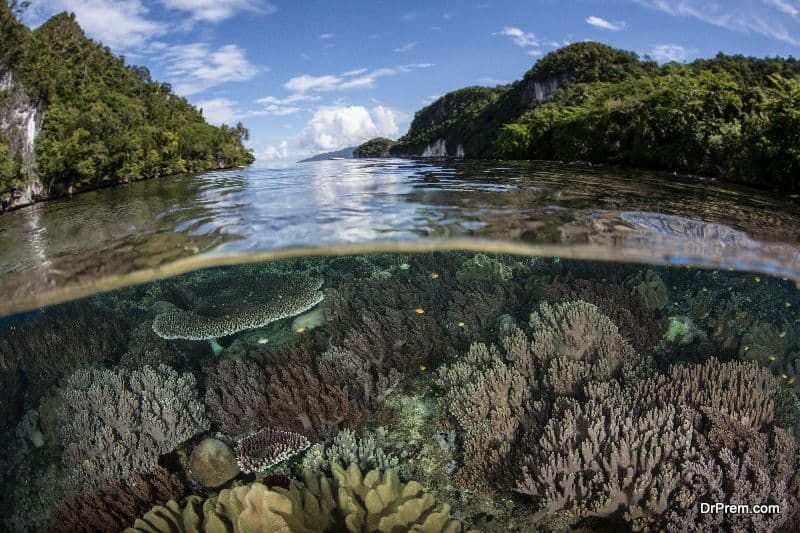Kenya sits on its proud heritage of big game, rolling savannahs, and splendid coral reefs. But, global warming in the form of higher temperatures could have disastrous impacts on these reefs, as well as the diverse marine life they play host to.
Ali Mohammed, deputy director of Coastal and Marine Programmes at the National Environment Management Authority, rued,
Climate change may not have sunk in with the common man or woman, but everyone realizes the transformation that is taking place in the water. Fish are disappearing. Coral reefs, which are like the rainforest of the sea, have been seriously affected. It is the industrialized world that needs to minimize its emission of greenhouse gases. Africa’s contribution to climate change is insignificant, yet it is greatly affected (by this change).
Researchers argue that green house gas emissions in the form of carbon dioxide and fossil fuels absorb and trap the sun’s energy, in turn prompt a rise in the earth’s temperature — which in turn is leading to climate change.
Under normal circumstances, carbon dioxide is the backbone for the coral reefs, but if in adequate amount. The reefs use sunlight and carbon dioxide from coral to produce substances rich in energy that feed the coral and other marine life forms.
On the contrary, higher sea temperatures disrupt this symbiosis. They cause the algae to be expelled leading to the bleaching of the coral. Once bleached the coral starves.
The year 1998 demonstrated a huge loss of coral, when a severe instance of the El Nino weather pattern caused 80 percent of Kenya’s reefs to be affected by bleaching.
The name El Nino is a climatic phenomenon that usually occurs in Southeast Pacific resulting in an increase in the temperature of Kenyan waters to some of their highest levels ever.
Reduced corals in turn have resulted in a lesser number of fish. This has in turn affected those 70 percent of who rely extensively on fishing for their livelihood. Coastal communities in East Africa continue to feel the brunt of rising sea temperatures.
The destruction of reefs has further complicated the matter and has produced devastating impact for Kenyan economy that is reliant on tourism. Marine- based tourism in the country accounts for more than two-thirds of the sector as a whole, according to government sources.
Global temperatures have risen by about 0.6 degrees Celsius since the middle of the 19th century, and it is expected that by 2100 temperatures could soar by 1.4 degrees Celsius to 5.8 degrees Celsius. If this happens, it will have a devastating impact on the biodiversity.
Predictions estimate that up to 1 million species may become extinct as a result of climate change. Therefore, some sort of urgency must creep in and the effect of climate change on biodiversity needs to be badly addressed.
Via:Ipsnews


